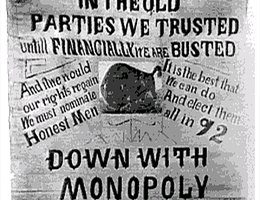
The Progressive Movement was concerned about a variety of
issues, including monopolies cornering the markets.
Courtesy U.S. Government, Nebraska Public Media.
PROGRESSIVE ERA
The Progressive Era was an age of protest, as people united to take action and make changes in America.
By opposing corrupted monopolies and granting women's suffrage, civilians posed great significance in converting “corrupt ways" anew during this time period.

The Progressive Movement was concerned about a variety of
issues, including monopolies cornering the markets.
Courtesy U.S. Government, Nebraska Public Media.
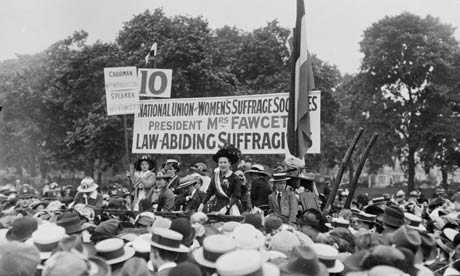
Millicent Fawcett speaking to a group at Hyde Park in 1913.
Guided History.
FACTORY CONDITIONS
Increase in demand pressured factories to manufacture goods in an inexpensive and efficient manner. Thus, factories utilized cheap materials to replicate products; now detrimental for consumption.
"Chamber of Horrors." U.S Food and Drug Administrationn.
"I have here . . . a number of adulterated articles. Here
is a bottle of cherries, originally picked green, in
order that they might be firm, with the green
color all taken out with acid until they were perfectly
white, and then colored with an aniline dye which is
poisonous in any quantity."
-Representative James Mann of Illinois, Speech to the
U.S. House of Representatives, June 21, 1906.
U.S Capitol.
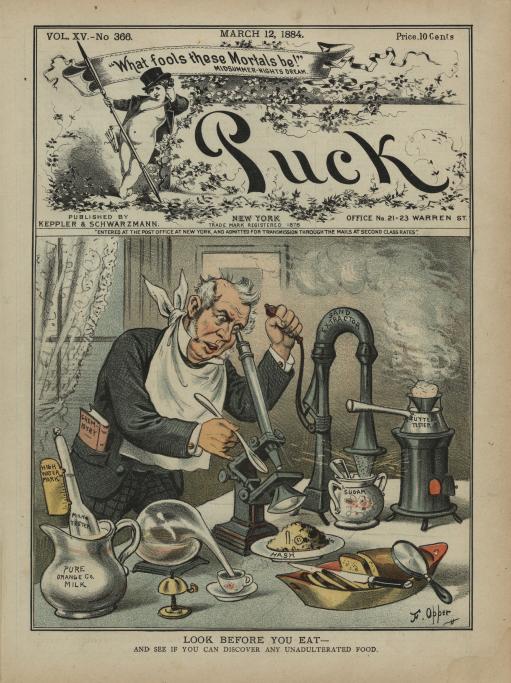
“Look before you eat . . . ,” Puck, Frederick Burr Opper, March 12, 1884.
US Capital.
Factory owners disregarded conditions within the facilities, and poor workers endured said calamities in order to make ends meet. Laborers were made up of the lower class, therefore, it was exceedingly difficult to retaliate or acquire a different job.
The meat packaging industry had impure and polluted conditions.
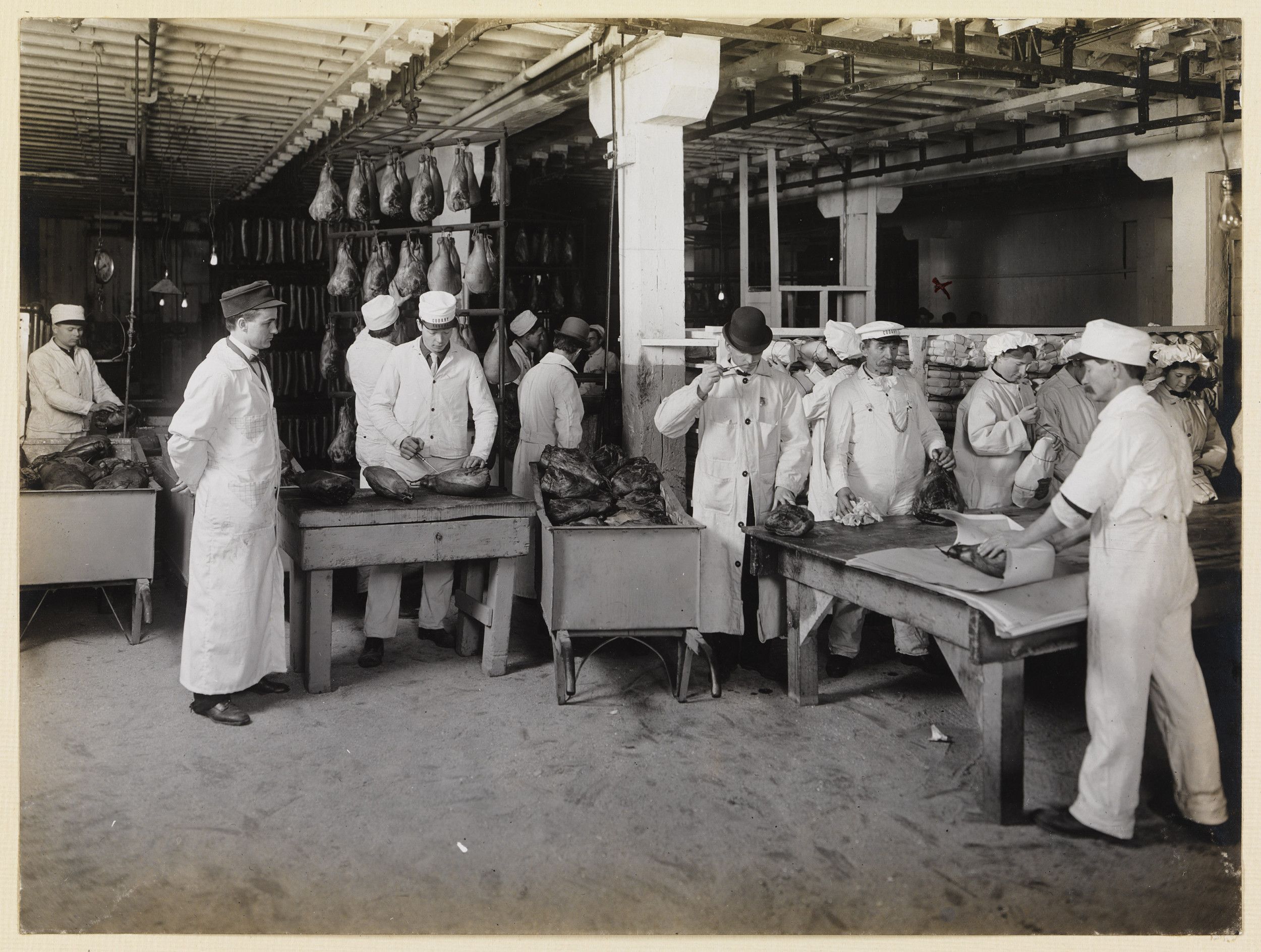
Branding Smoked Hams, Docs Teach.
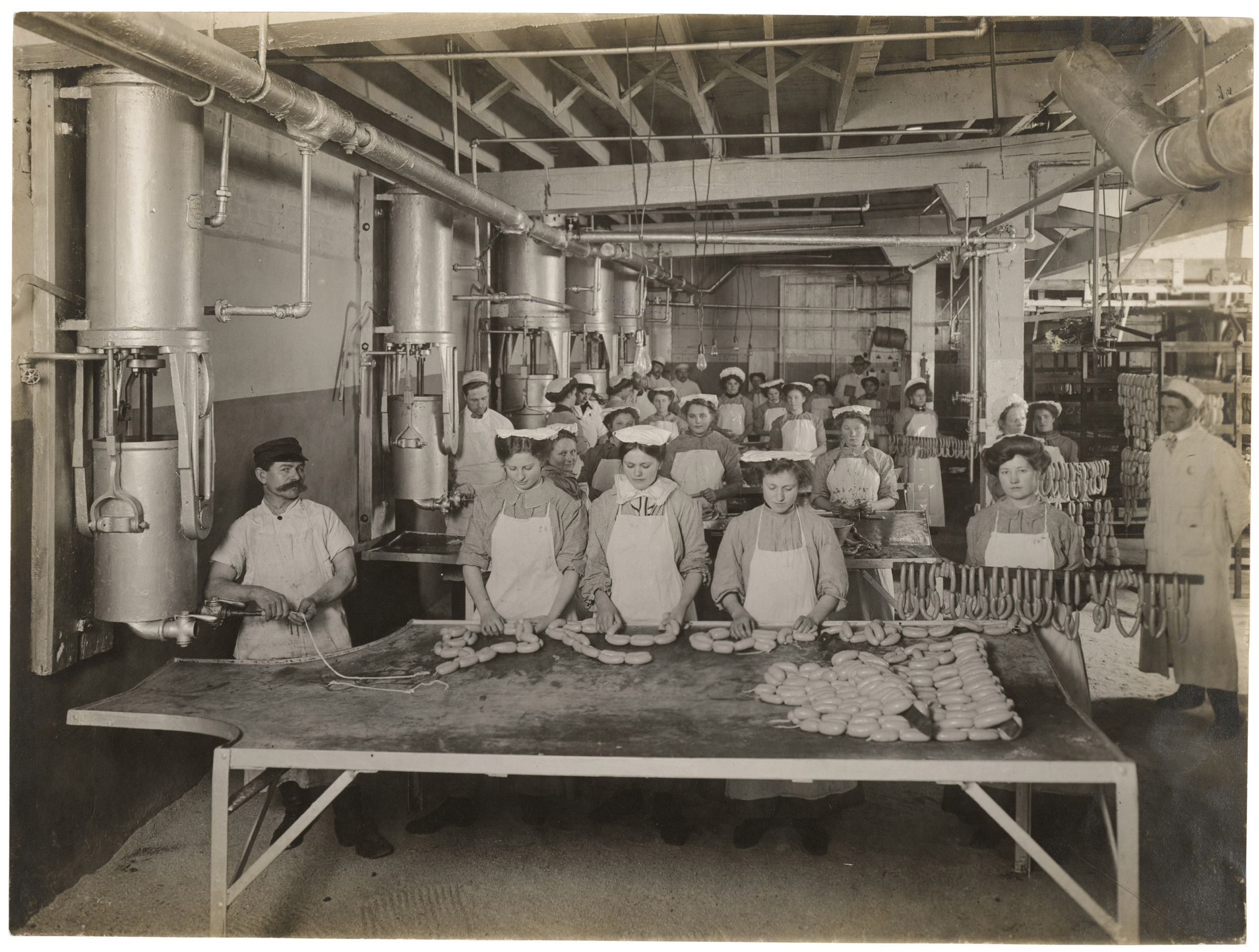
Cudahy Packing Co., Omaha, Nebraska, Docs Teach.

Postcards in South Africa attacking Chicago's meatpacking industry.
Messrs. Armour & Company stated that these cards are "working great harm
to their business." The Lodger and Chicago Tinned Meat.
"1900s Manufacturing Factory Industry Labor Stock Video b-roll." Buyout Footage Historic Film Archive
Machinery in factories imposed danger to the workers, causing many incidents or even death. This was a common occurrence due to the lack of regulation.
“In plain sight of a hundred fellow‑workmen, Martin Stoffel was cut into small pieces at the Philadelphia Caramel Works ... He was dragged into the machinery and his head severed... A second later both legs were cut off. Then one arm after the other fell into the lesser wheels below, both being cut into many parts. Before the machinery could be stopped, Stoffel had been literally chopped to pieces.”
-TFI, October, 1905.